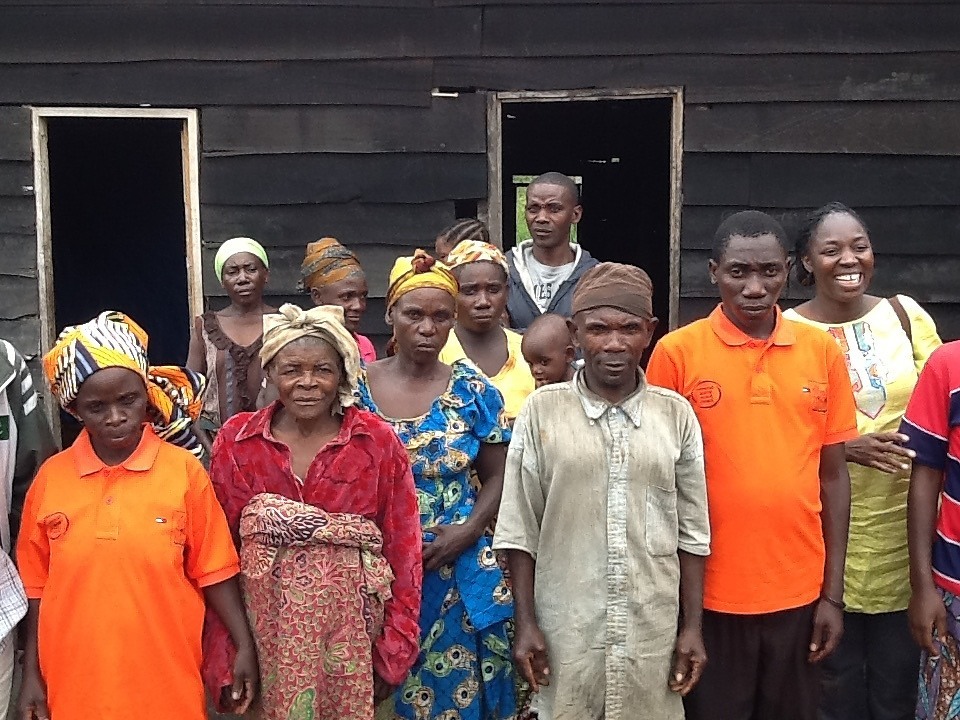From November 30th through December 11th, world leaders are convening at the 2015 Paris Climate Conference to take action against the dangerous consequences of climate change.
We have been sharing reflections from AJWS grantees about how climate change affects their work. To learn more, read our introduction and first post from AJWS grantee GATT-RN in the DRC, and read our blog post from last year’s climate talks to see how other AJWS grantees from around the world are affected by climate change.
Read the second piece below from our grantee Program for the Integration and Development of the Pygmy People (PIDP) in the DRC.
The Consequences of Climate Change on the Pygmy People
Reflections from Program for the Integration and Development of the Pygmy People (PIDP)
The indigenous Pygmy people are highly vulnerable to the harsh effects of climate change. For decades, Pygmies have lived by hunting, gathering, fishing and gathering. Forest conservation, the establishment of protected areas, and the granting of concessions to logging and mining companies, have caused the expulsion of indigenous Pygmies from their natural space of living. Local communities in rural areas—particularly indigenous people, including women—are heavily dependent on agriculture and fishing in order to survive, but these industries often bear the brunt of climate change.
The destabilization of the Aboriginal community over the years has led to decreased food production. Farmers have confirmed that food production has decreased very significantly compared to five to ten years ago. Areas have been threatened by droughts, as the rainy seasons no longer follow their traditional cycle. Climate change has caused high temperatures, torrential rains, floods that destroy crops, and the emergence of new diseases that affect crops; these factors have all contributed to low agricultural production and food insufficiency. Certain varieties of crops including cassava and banana are threatened and attacked by new diseases. Fishermen in the Walikale territory, a region where PIDP works, have confirmed that certain species of fish are disappearing due to the effects of climate change. Climate change has caused the proliferation of several diseases during the dry season, including flus, sore heads, and waterborne diseases such as typhoid fever, tuberculosis and cholera.
Forests in the Aboriginal community are also threatened by artisanal and industrial forestry and mining exploitation, which has led to land and soil degradation. The industry does not respect laws and environmental principles. The degradation of forests has harsh consequences for the Aboriginal community’s forest resources.
In Aboriginal communities, women endure the harshest effects of climate change. Global warming has an impact on women’s priorities including their families’ food security, health, and well-being.
PIDP has developed a number of initiatives working to combat climate change, including:
- The development of community forest site drivers specific to indigenous Pygmies in Walikale territory;
- Promotion of community dialogue, land conflicts mediation, and facilitation of access to land and land security for indigenous peoples;
- Advocating for the government to take into account the rights and interests of indigenous Pygmies in the process of the ongoing land law reform in DRC;
- Advocating for legal recognition of territories of Aboriginal heritage and indigenous communities;
- Promotion of small livestock (rabbit) to strengthen indigenous Pygmies’ livelihoods;
- Reforestation of degraded areas;
- Work on the activities of “Reducing Emissions from Deforestation and Forest Degradation” (REDD) experimental, to improve the conditions of access of small structures to credit carbon;
- Training on modern agricultural techniques, including agroforestry; and
- Monitoring and documentation of governance and management of natural resources in community forests
At the Paris Conference, PIDP will be represented by Joseph Itongwa Mukumo, Coordinator, and Diel McDaniel Mwenge, Provincial director for Nord-Kivu. PIDP will participate in a number of activities at the Paris Conference, including awareness-raising campaigns on the roles of forests maintained by indigenous people, presentation of geo-referenced maps and the possibility of quantity of costlier on the soils and native forests in the DRC. In addition, PIDP will present our experience on community forestry, the contribution of Aboriginal peoples to conservation, including in the ongoing land law reform in the DRC.

Read more about Masinda Masiano and Joseph Itongwa, two Pygmies from DRC leading AJWS grantee PIDP.
AJWS’s work in countries and communities changes over time, responding to the evolving needs of partner organizations and the people they serve. To learn where AJWS is supporting activists and social justice movements today, please see Where We Work.

